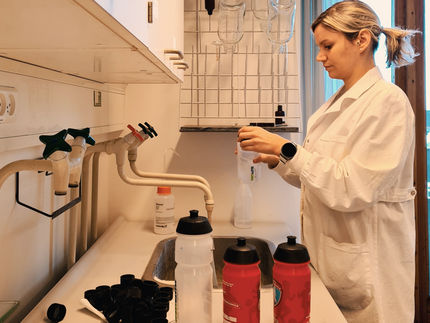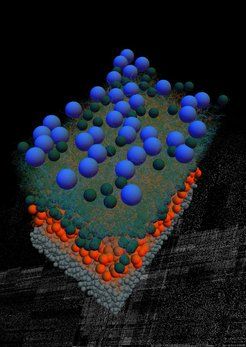U of Minnesota researchers discover high levels of estrogens in some industrial wastewater
Study is the first of its kind to examine a wide range of processing industries
In a groundbreaking study, civil engineering researchers in the University of Minnesota's Institute of Technology have discovered that certain industries may be a significant source of plant-based estrogens, called phytoestrogens, in surface water. They also revealed that some of these phytoestrogens can be removed through standard wastewater treatment, but in some cases, the compounds remain at levels that may be damaging to fish.
Civil engineering associate professor Paige Novak and her graduate student researcher Mark Lundgren studied wastewater streams from 19 different industrial sites in Minnesota and Iowa and analyzed them for six phytoestrogens. They found very high concentrations of these hormone-mimicking phytoestrogens - up to 250 times higher than the level at which feminization of fish has been seen in other research - in the wastewater discharged from eight industrial sites, including biodiesel plants, a soy milk factory, a barbecue meat processing facility and a dairy. They also detected high concentrations of phytoestrogens in the water discharged by some municipal wastewater treatment plants.
The good news is that the researchers revealed that phytoestrogens can be removed from water as it goes through standard treatment. In fact, they saw more than 90 percent removal of these compounds from the water. Unfortunately, sometimes 99 percent removal is needed to reach levels that are considered harmless to fish.
Plant-based phytoestrogens are naturally occurring but have been shown to function as hormone mimics and alter development and reproductive patterns in fish. These effects include decreased aggression, immunosuppression, and decreased testosterone production. Other estrogens that cause similar effects have been linked to population-level collapse in fish, Novak said.
"Many people have looked at human-related chemicals such as those in birth control pills as the primary source of estrogens in the water supply, but they have not looked at plant-based estrogens from a wide variety industries," Novak said. "Our research is the first study of its kind to provide a snapshot in time of what is going on in these industries. We hope that it can be used in planning new industrial sites and expansion of current sites."
Most read news
Organizations
Other news from the department science

Get the life science industry in your inbox
By submitting this form you agree that LUMITOS AG will send you the newsletter(s) selected above by email. Your data will not be passed on to third parties. Your data will be stored and processed in accordance with our data protection regulations. LUMITOS may contact you by email for the purpose of advertising or market and opinion surveys. You can revoke your consent at any time without giving reasons to LUMITOS AG, Ernst-Augustin-Str. 2, 12489 Berlin, Germany or by e-mail at revoke@lumitos.com with effect for the future. In addition, each email contains a link to unsubscribe from the corresponding newsletter.




















































